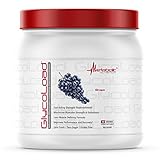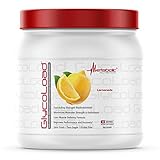Carbohydrate Loading
Carbohydrate loading will increase endurance for extended aerobic workouts. If your endurance drops off sharply during your workout you may benefit from this easy technique. Your body has different metabolism processes to break down each type of food. The carbohydrate metabolic process is the most efficient metabolic process. It allows your body to store reserves which can be released during extended aerobic exercise. By "loading" on carbohydrates the body will store reserves in the form of ATP.
Carbohydrate loading takes advantage of carbohydrate metabolic process. When you eat a much larger percentage of carbohydrates than protein or fat, an abundance of ATP is produced. If it is not used, it is stored in the form of glycogen in the liver and muscle fibers. During extended aerobic exercise the glycogen is released and converted to energy.
Two categories of carbohydrates
- Simple carbohydrates - candy, processed, manufactured sugar products.
- Complex carbohydrates - grains, vegetables, fruits, starches.
Both complex and simple carbohydrates convert to glucose in exactly the same way. Complex carbohydrates provide the additional benefit of providing ruffage, bulk, vitamines, minerals. Complex carbohydrates are the best source of carbohydrates for loading. Grains, vegetables, starches, etc… are complex carbohydrates. These are the best source for carbohydrate loading.
Proteins and fats do not convert to energy as efficiently and the metabolic process does not result in storing glycogen. The metabolic process for carbohydrates results in storing the unused glycogen. Carbohydrate loading will result in an increase of glycogen stored in your muscles and liver. This extra storage of energy results directly in improved endurance and stamina. See How Muscles Work, and Carbohydrates.
Carbohydrates are not (by themselves) a source of weight gain. A balanced diet with carbohydrates making up about 70% of the total is best for athletes. Your body is made for processing carbohydrates efficiently, and converting, using and storing energy. The carbohydrate metabolism process stores energy without first converting to fat. The first storage process is to glycogen. After glycogen stores are full, the body begins converting to fat. The process of converting to body fat happens much more quickly with proteins and fats.
Carbohydrate loading causes your body to store glycogen
Your body's storage of glycogen in the muscles and liver increases. The glycogen is used by muscles for additional energy and sustained performance and enhanced endurance. It takes about 2,400 carbohydrate calories over several days to recover after exercise. Carbohydrate loading is done by consuming about 640 grams of carbohydrates a day and reducing your protein and fat intake significantly. If you climb longer routes such as trad, long sport routes, or lead long routes, or if you are a competition climber, carbohydrate loading may help your performance.
To use carbohydrate loading to improve your endurance, do the following:
- Eat a higher amount of complex carbohydrates throughout your training. This makes your body more efficient at processing carbohydrates.
- Three or four days before the event, stop exercising but continue stretching. If you work out hard you may need four days to recover and do carbohydrate loading. This gives your muscles time to recover, and allows your body to gather glycogen during carbohydrate loading.
- Eat 4 grams of carbohydrates for every pound you weigh. A gram of carbohydrates only gives you 4 calories. If you weigh 160 pounds, eat 640 grams of carbohydrates.
- Stretch twice a day during the carbohydrate loading period to keep your muscles, ligaments and joints warmed and limber. Reduce your level of activity but continue to stretch.
Carbohydrate loading does not help for all types of climbing. For example, bouldering is primarily a strength activity. A climber who trains for bouldering will primarily work on short and difficult power moves. Endurance helps but the main physical attribute needed for bouldering is strength. Short sport climbing routes do not get much benefit from carbohydrate loading for the same reason. The best benefit from carbohydrate loading comes from long endurance activities.
Summary of Carbohydrate Loading:
Carbohydrate loading will increase your glycogen storage in your liver and muscles. Glycogen is the basic energy source for muscle endurance. You can increase your endurance by carbohydrate loading several days before the event.











